About the Event
Agile Venture Bolzano is a one-day event dedicated to all things Agile. Featuring experts from both industry and academia, the event will offer a series of insightful presentations on Agile methodologies and practices. Attendees can also participate in dynamic and interactive open-space sessions, where anyone can step into the role of presenter or facilitator.
Supported by the Italian Agile Movement, the Agile Alliance and Free University of Bozen-Bolzano, this event is scheduled for June 3, 2024, at the NOI Techpark in Bolzano, right before the 25th International Conference on Agile Software Development (XP2024). Best of all, it's free and open to everyone!
Program
| Morning Session | ||
|---|---|---|
| 8:30 AM - 9:00 AM | Registration | |
| 9:00 AM - 9:15 AM |
Welcome from Italian Agile Movement (IAM) Dimitri Favre (IAM Chairman) |
|
| 9:15 AM - 10:00 AM |
Opening Keynote: The Turn of the Tide – From Agile to Agility Andrea Provaglio |
|
| 10:00 AM - 10:45 AM | Seminar Room 1 | Seminar Room 2 |
|
Embrace Change (beyond the Backlog) (30-min Talk) Marco Trincardi Development KPIs for an XP Team reporting to Higher Management - mixing dashboards and informative workspace (15-min Talk) Marco Mondini |
More than 20 years teaching agile methods, what did I learn? (30-min Talk) Alfredo Goldman Fast reaction to a Black Swan (15-min Talk) Francesca Martinuzzi |
|
| 10:45 AM - 11:15 AM | Morning Coffee Break | |
| 11:15 AM - 12:00 PM | Seminar Room 1 | Seminar Room 2 |
|
Rewriting software that has been written over 20 years in 2 weeks. Is that possible? (30-min Talk) Andrea Janes Stop talking requirements, start thinking hypotheses (15-min Talk) Jorge Melegati |
What my Favorite Movies Taught Me About Agile (30-min Talk) Eduardo Guerra Scrum@Hardware: 4 years of experience in introducing Scrum in the construction world (15-min Talk) Davide Roitero |
|
| 12:00 PM - 12:45 PM |
Open-space Opening Session Pierluigi Pugliese (facilitator) |
|
| Lunch Break (light lunch offered)/ Open-space Sessions (12:45 PM - 2:00 PM) | ||
| 2:00 PM - 3:30 PM | Seminar Room 1 | Seminar Room 2 |
|
Open-space Sessions |
Open-space Sessions |
|
| 3:30 PM - 4:00 PM | Afternoon Coffee Break | |
| 4:00 PM - 5:00 PM |
Closing Keynote: By Design, not by Accident Pierluigi Pugliese |
|
Talks and Speakers
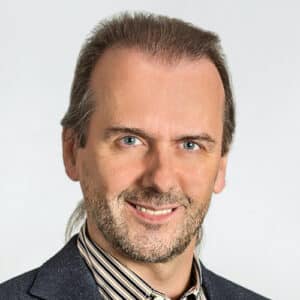
The Turn of the Tide – From Agile to Agility (Opening Keynote)
Andrea Provaglio
Abstract: Signals and events in the market clearly show that the general sentiment towards Agile started to shift during the last year, but not in a good way. Is Agile, as an approach to iterative product development, and the Agile community, in general, failing to meet the needs of organizations and companies? Have we failed to adapt, which ironically is what we preach as one of the fundamental values of Agile? In this session, we'll not provide many answers. Instead, we are going to raise a few questions about how the vast body of knowledge and refined skills that the Agile community has developed can better serve society today.
Bio: Andrea is a long-standing Agile practitioner. In recent years, he has been exploring the topic of agility outside of Information Technology. Andrea is especially interested in distributed leadership in knowledge-based organizations, a topic that touches on a number on subjects, including non-conventional organizational structures and individual and collective communication and social skills. Andrea works with leaders, executives, managers and teams in organizations that want to thrive in the complex domains of the 21st century and he helps them rethink their organizational dynamics, mindset, processes and practices to be more adaptive and effective in their business. In over 20 years of professional experience, first in IT then in Agile in the broader sense, he worked with organizations in three different continents, as big the United Nations’ FAO and as small as dynamic post-startup companies. He has a wide range of expertise, in both the public and private sector, with both large and small organizations and with different cultures.
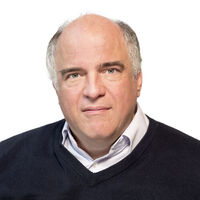
By Design, not by Accident (Closing Keynote)
Pierluigi Pugliese
Abstract: You have some agile teams, some Product Owners, some coaches, … Yet, your organisation is still not improving. Agility at scale is way more than just “having agile teams”. It is the result of a deliberate effort in organisational design that systematically addresses and removes organisational complexity. In this keynote, we will discuss how this endeavour could be organised and executed using an evolutionary and emergent process, where everybody is involved in the change work and leaders act as catalysts.
Bio: Pierluigi is active as Agile Coach, Systemic Consultant and Trainer. He has 30+ years long experience in product development and streamlining complex international and multi-site projects. His expertise is cross-sector and independent from hierarchical structures, spanning from consulting and coaching for top management to working with teams. He regularly speaks at international conferences, especially focusing on large-scale and people aspects of agility. Pierluigi is based in Munich, Germany and operates through his company Connexxo (https://connexxo.com).
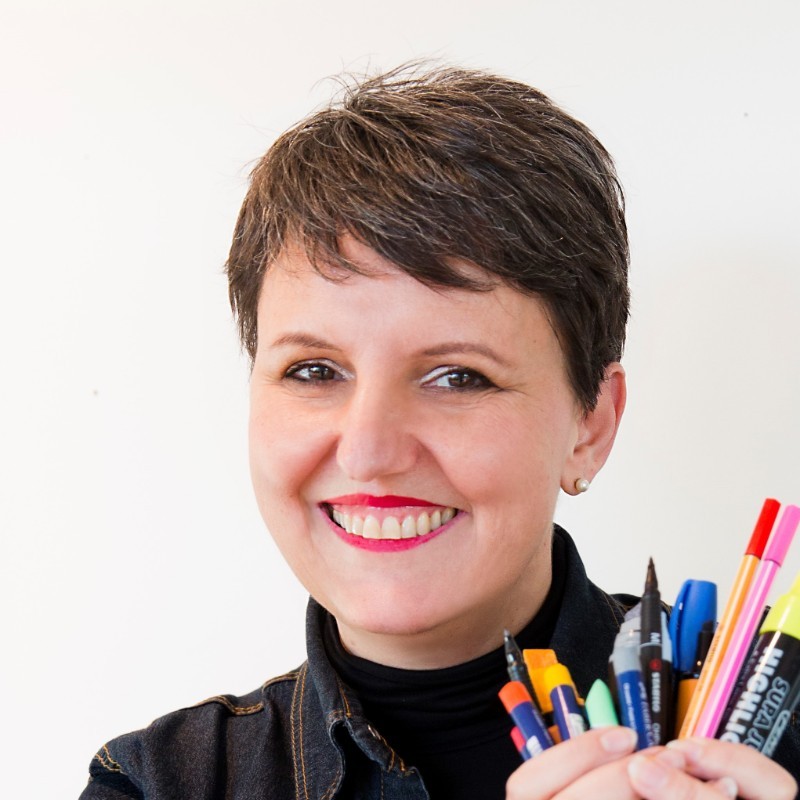
Fast reaction to a Black Swan
Francesca Martinuzzi
Abstract: "In the new world, it is not the big fish which eats the small fish, it’s the fast fish which eats the slow fish.” - Klaus Schwab
Even more so, in the VUCA world and after the pandemic, it is the company capable of evolving that gets the better of the company that does not change. Starting from this premise we will explore the concept of antifragility and observe the advantages of structuring complex systems into self-organized units (with a parallel with Agile methodologies). This path will allow us to understand how to transform difficulties into opportunities for growth and innovation. Based on this observation, we will investigate how to effectively implement antifragility concepts within the business organization, aiming to overcome future challenges and prevent the impact of "black swans".
Bio: Agile Coach at TeamSystem S.p.A. Certified ICF Coach. Bikablo Visual Trainer. Francesca supports business and developers in achieving challenging objectives in a highly innovative and totally digitalized context, customizing coaching and frameworks for delocalized teams. Humanist by nature and training, she has changed cities, jobs and perspectives several times, always guided by curiosity for the new and a real vocation for change; pragmatism and joy of living, broad horizons and attention to detail are some of the treasures she has collected along the way. She loves supporting people to be the best they can be and feel good.
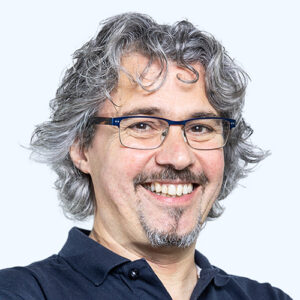
Embrace Change (beyond the Backlog)
Marco Trincardi
Abstract: Adapting to change is well rooted in Agile methodologies; short iteration, tight feedback loop, planning, and backlog refinement are all practices that support this approach. However, these practices are focused on the project or team level, unintentionally limiting the concept of "adapting to change" to IT departments. In this talk, I'll highlight how change permeates all levels of an organization and why processes and standards must evolve to enhance adaptability. In the current era, this topic should be of interest to everyone involved in management or organizational design, regardless of whether they apply any Agile methodologies.
Bio: Marco is a seasoned manager with over 25 years of experience in software development. His journey began as a software developer, but in the early 2000s, he discovered eXtreme Programming, which profoundly influenced his career. Immersing himself in technical practices, he transitioned into a role as a technical coach. His passion for enhancing team dynamics and organizational efficiency led him to become an Agile coach, consultant, and trainer. Since 2016, he has embraced managerial roles, where he advocates innovative and contemporary management practices.
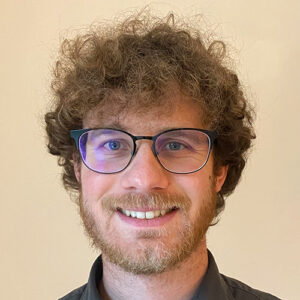
Development KPIs & Reporting - Navigating a Multi-Project/Product Environment
Marco Mondini
Abstract: Managing multiple projects and products presents unique challenges, particularly in terms of performance measurement and reporting. Drawing from uButler experience over the past couple of years in building the product development departments, this talk offers a deep dive into the implementation and benefits of different reporting mechanisms influenced by XP, Information Radiators, and Theory of Constraints. Attendees will gain insights into the specific types of reporting formats, including a detailed look at our "Development Radiator"—a dashboard designed to display critical KPIs—and our management reporting process. We will discuss how they help us focusing on continuous delivery and improvement, enhancing transparency and facilitating better understanding among non-technical stakeholders.
Bio: Marco is an experienced XP practitioner, working with early stage startups and scale ups for over 10 years. Currently working as Head of Development at uButler, Marco has a background in academic Agile research and grown as a software developer and engineering manager. His passion for agile practices and continuous process improvement got him close with the software craftsmanship world over the past years. He is a big fan of collaboration and pair programming. When not behind a laptop you can find him enjoying a good coffee, a bouldering session, and always up for a nice conversation.
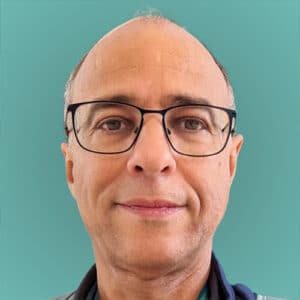
More than 20 years teaching agile methods, what did I learn?
Alfredo Goldman
Abstract:This talk explores the journey of the Agile Methods Lab at USP, founded in 2001. We'll discuss how we've integrated agile values into the course, using techniques like course retrospectives and collaborative learning activities. In recent years, the Lab has tackled stimulating projects like Linux kernel drivers, data science/AI, and hardware. We'll showcase how agile methods have been successfully applied in these diverse settings. This presentation offers practical insights into implementing agile methodologies in not-so-usual settings.
Bio: Alfredo is a full-time professor at São Paulo University, Institute of Mathematics and Statistics (IME). Graduated with a BS in Applied Mathematics from the University of São Paulo (1990), MSc in Applied Mathematics from the University of São Paulo (1994), and Ph.D. in Informatique et Systèmes - Institut National Polytechnique de Grenoble (1999). He is currently an associate professor at the University of SãoPaulo. He co-chaired several conferences and tracks, like XP 2024 and SC 23 - co-workshop chair, Carla 22, Europar 21 and 17, and SSC 20 - co-track chair. His areas of expertise include parallel and distributed computing, scheduling, and agile software development.
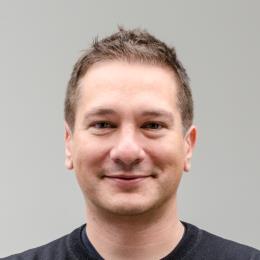
Rewriting software that has been written over 20 years in 2 weeks. Is that possible?
Andrea Janes
Abstract:Many companies are confronted with the problem of rewriting software that they have developed over many years as a monolith so that it can be used via the web. There are many reasons for this: lower distribution costs, easier feedback from customers, availability of specialists, and much more. This talk reports on a case study in which an existing medical administration software that was developed over 20 years was redeveloped within 2 weeks. The approach was to identify recurring elements and develop them as flexible building blocks. The software is then defined in an abstract model and generated combining repeating blocks according to a model. The question that now arises - and should also be discussed with the audience - is what impact this approach has on Agility and what balance there is between the two extremes of model-driven software development (in which building blocks exist on different levels of granularity) on the one hand and traditional software development on the other.
Bio: Andrea is an associate professor at the Free University of Bozen/Bolzano. He was previously a senior lecturer and researcher at the FHV Vorarlberg University of Applied Sciences in Dornbirn, Austria, and a researcher at the Free University of Bozen/Bolzano, Italy. He is also involved in technology transfer, where he acquired and led several research projects and collaborations with industry. He holds a master's degree in business informatics from the Technical University of Vienna, Austria, and a doctorate in computer science (with distinction) from the University of Klagenfurt, Austria. He is particularly interested in Lean and Agile approaches to software engineering, value-based software engineering, empirical software engineering, and software testing.
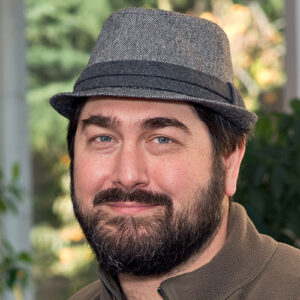
What my Favorite Movies Taught Me About Agile
Eduardo Guerra
Abstract: A famous quote says that "the beauty is in the eye of the beholder", however maybe the same can be said about the message. In this entertaining talk, iconic moments from famous movies from pop culture are used to trigger exciting discussions about common pitfalls of agile software development. It will include classic movies from the 80s, such as Back to the Future and Indiana Jones, and more recent ones, such as Avengers and Lord of the Rings. The scenes work as the starting point to discuss important themes about software development, such as the agile culture, teamwork, continuous learning, and approaches for making technical decisions.
Bio: Eduardo is a Researcher at the Free University of Bozen-Bolzano, Italy. He worked for seven years at the Spacial Institute for Space Research (INPE) in Brazil, reaching the senior researcher level. Before that, he also acted as a teacher at the Instituto Tecnologico de Aeronáutica (ITA), which is known as one of the best engineering schools in the country. The focus of Eduardo Guerra’s research can be defined as “find better ways to develop software”, which includes patterns, programming approaches, and processes to be used by the development team. He considers the principles of Agile Software Development the core guidance of his research since they aim to improve software quality, optimize development time, and increase software adaptability. Test-driven development (TDD) was the core of several works that focused on test code refactoring, application of TDD for specific kinds of software, and teaching and evaluating the technique. Also, in the scope of programming techniques, metadata, and code annotations were the focus of several works that aimed to study them as an alternative to make the software more adaptable and improve the code quality.
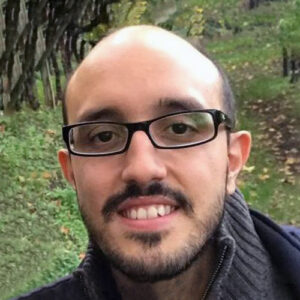
Stop talking requirements, start thinking hypotheses
Jorge Melegati
Abstract: Even though agile values interactions, collaboration, and response to change, it is still driven by requirements, e.g., user stories, that describe in detail features to be implemented. However, in many scenarios, there is no complete knowledge to properly define these requirements and teams rely on opinions, which could lead to waste if they are wrong. Experimentation is an alternative approach, in which assumptions about the system are taken as hypotheses and systematically tested using experiments. To be effectively experimentation-driven, a very first step is for all stakeholders involved in software development to move from a requirement, feature-driven mindset to hypothesis thinking. In this talk, we will introduce the concept of hypothesis engineering, and present two examples of hypothesis thinking: one for startups business assumptions and software architecture.
Bio: Jorge is a researcher at the Faculty of Engineering of the Free University of Bozen-Bolzano. His research focuses on improving software engineering considering human and process-related aspects, especially with the use of AI-based tools. He has published in several journals and conferences. Before joining academia, he has acted as a professional software developer for more than eight years.
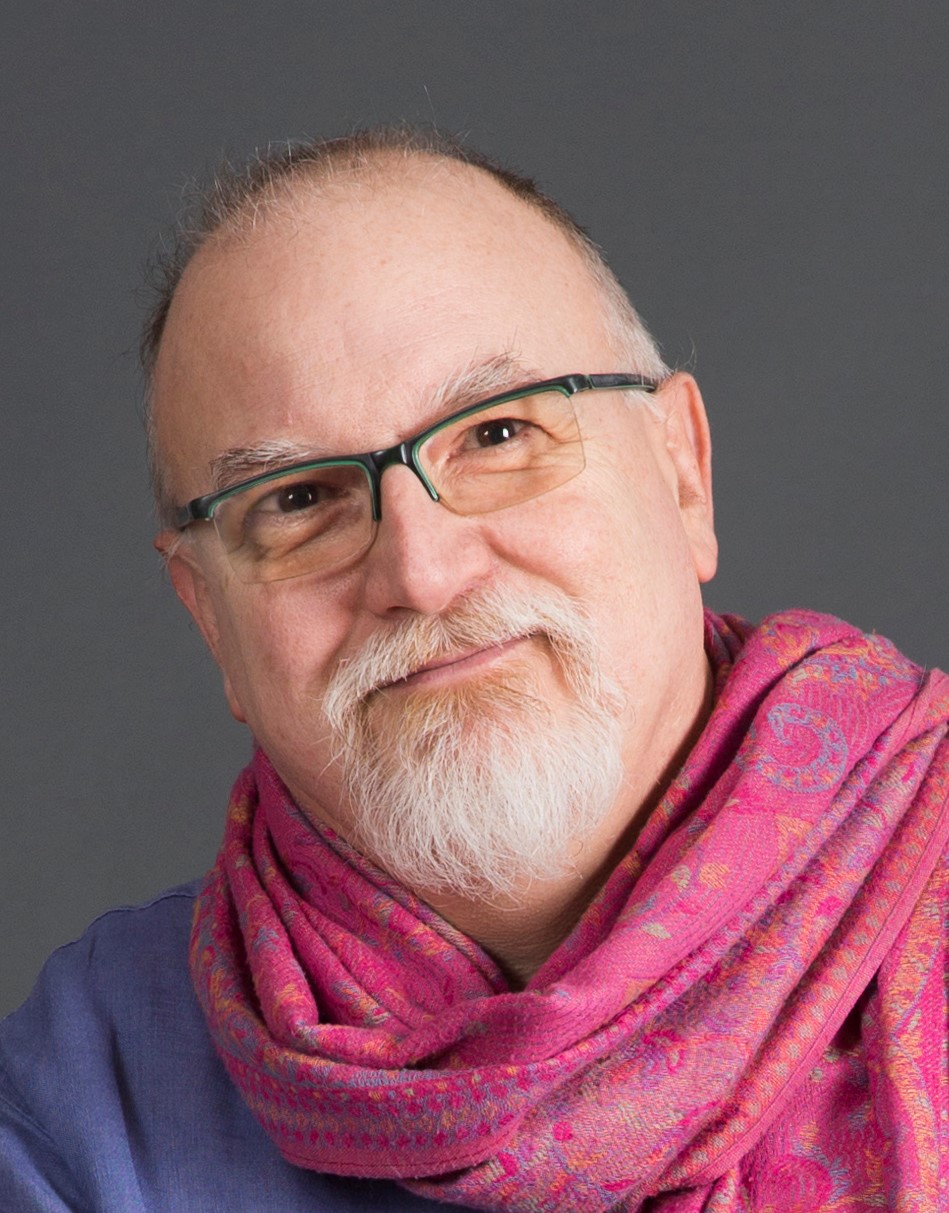
Scrum@Hardware: 4 years of experience in introducing Scrum in the construction world
Davide Roitero
Abstract: A chat about the experiences of implementing Scrum in a company of about 20 architects and engineers. From the beginning problems to the current organization; the hopes, the difficulties, the surprises: a colloquial retrospective on the evolution in the last 4 years.
Bio: After a long career in IT as a technologist and innovation manager, Davide starts the first Scrum team in the world's oldest bank in 2009. There he later becomes Agile Coach and, since 2014 takes charge of the agile transformation of all corporate IT development. He is ICF PCC coach and, since 2020, board member of the Italian Agile Movement.